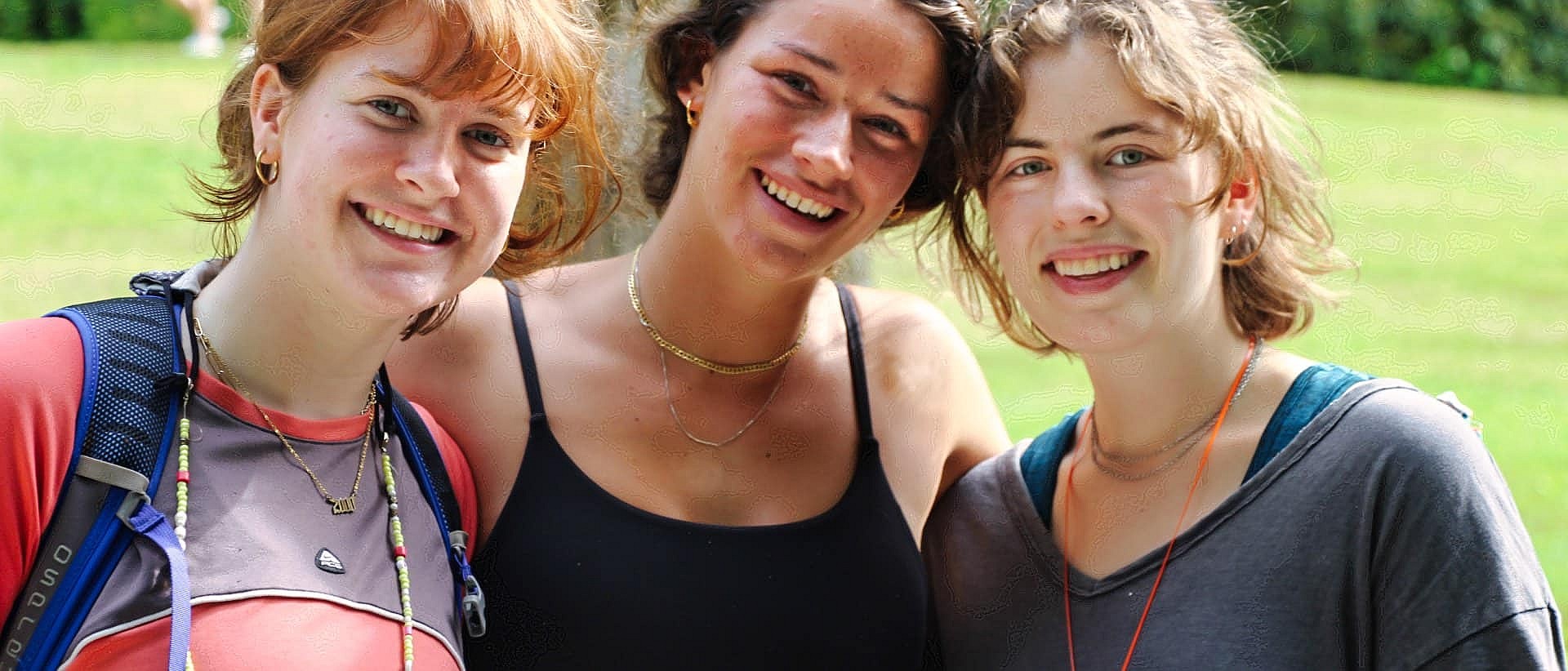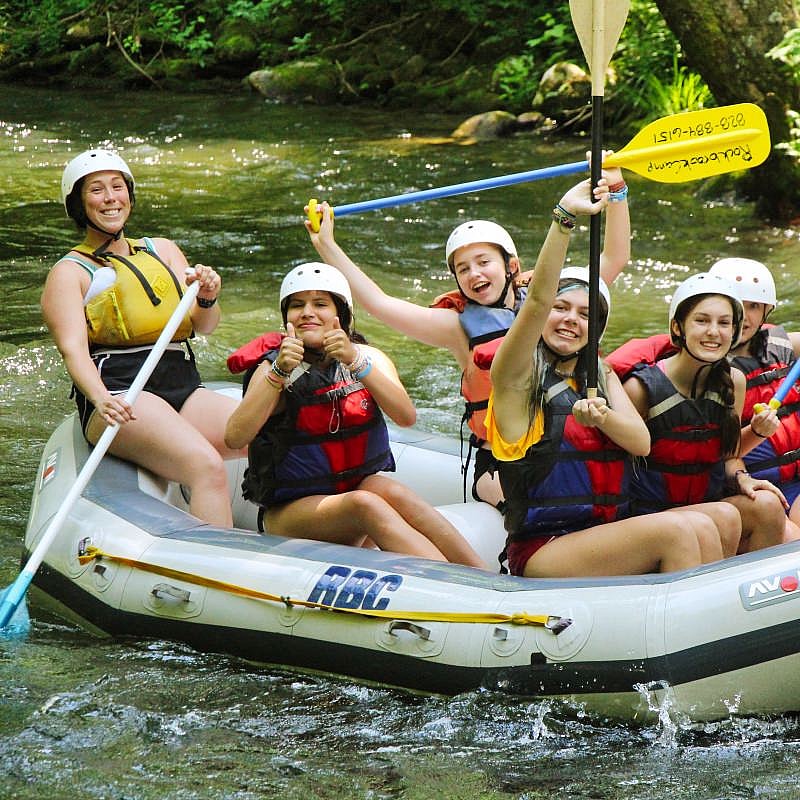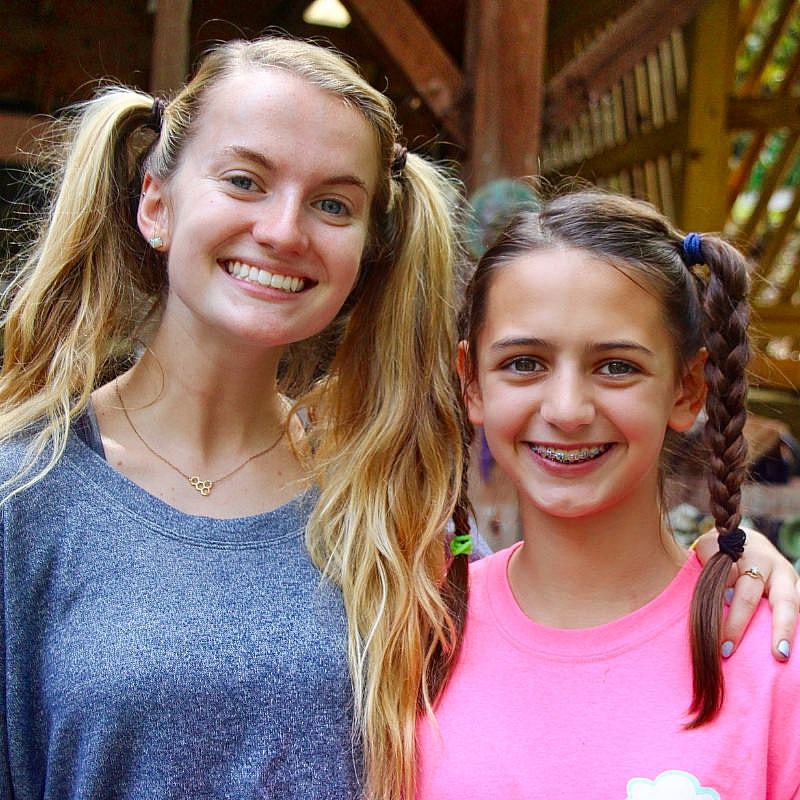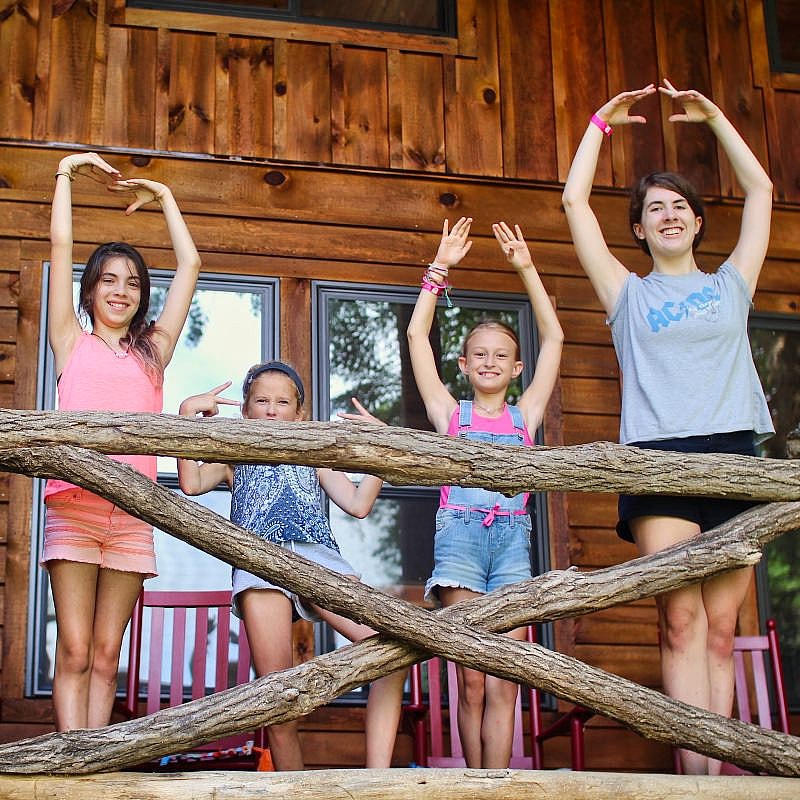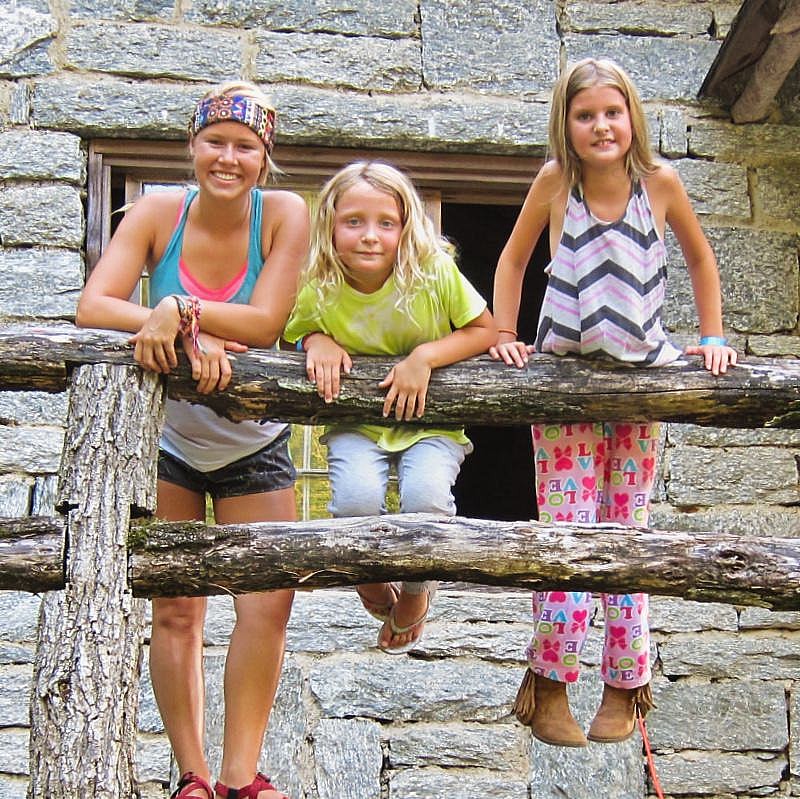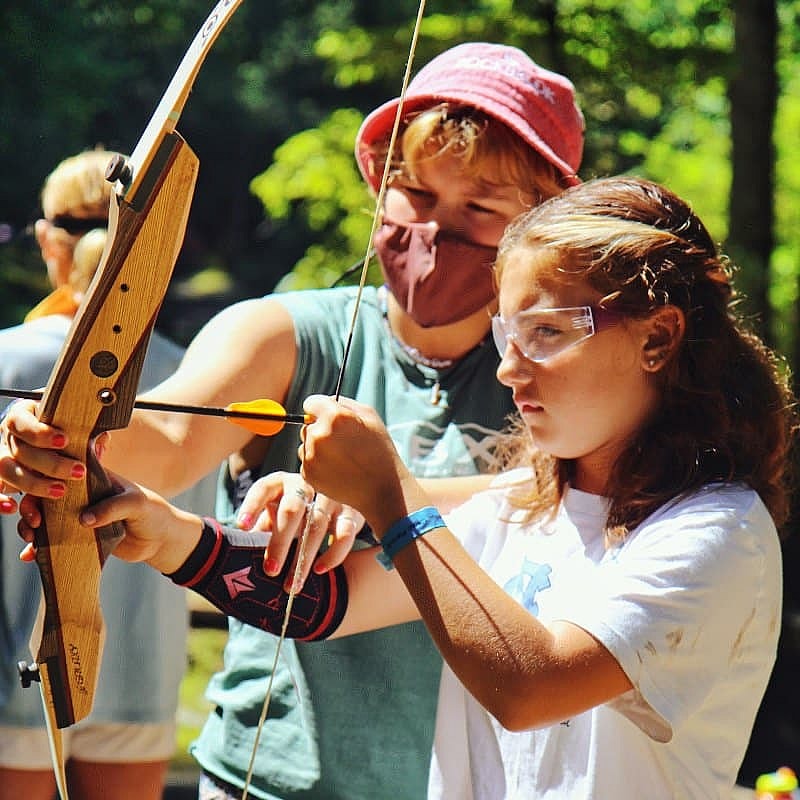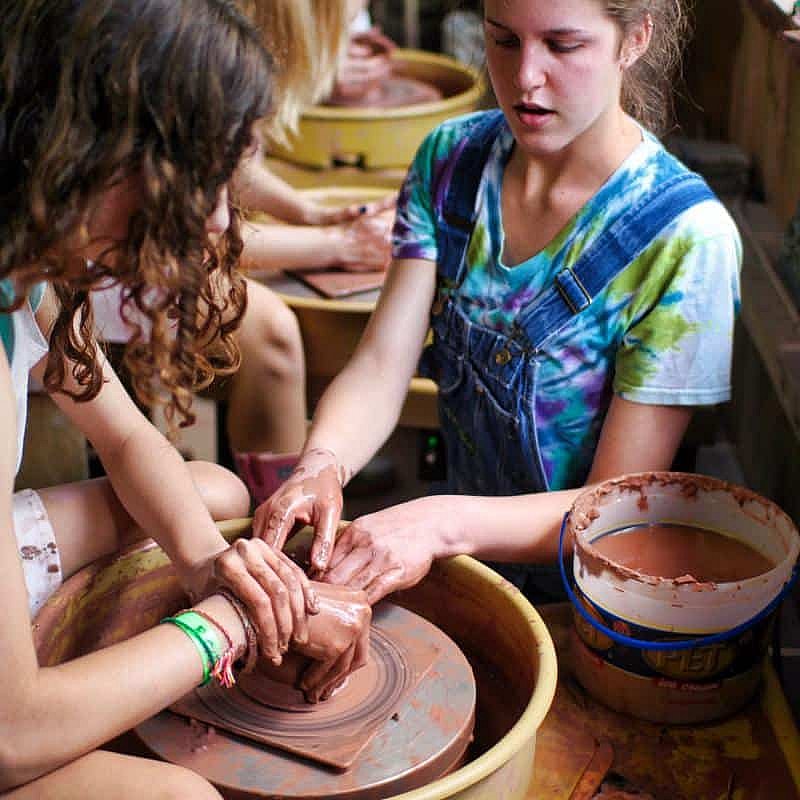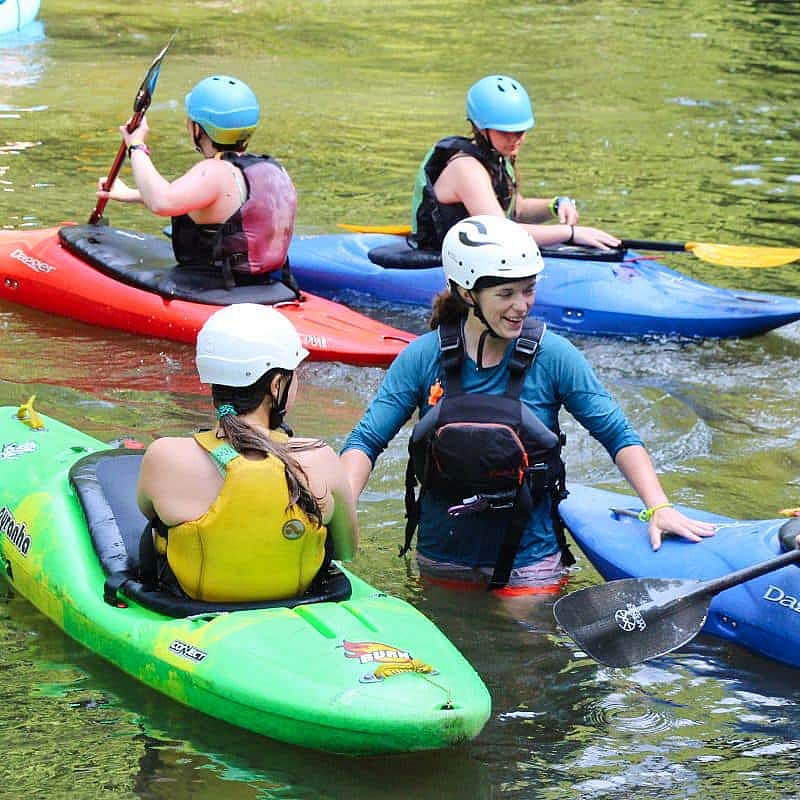Why work at Summer Camp?
What are the true benefits of working as a camp counselor for the summer? What makes it uniquely different from other summer jobs or internships that a college student might land?
It’s important to ask these questions because it’s easy to misunderstand what being a counselor is like. For example, you might incorrectly think it’s not a “real job,” or that it’s “glorified babysitting,” or that it’s useful only for those wanting to be teachers. If you’ve never worked at a camp, you might have the wrong impression about how you spend your day, the challenges you face and the skills required to meet those challenges.
No matter what your major, and no matter what your longterm career goals, camp counselor work is one of the smartest ways to spend your summer— both for you personally and for your future employment prospects.
Here’s why!
The primary benefit of being a camp counselor is that you develop and practice valuable real-world skills. Everyday, successful counselors hone their ability to work with people, to master complex tasks, and to approach their work with attention and enthusiasm. Just living the life of a camp counselor provides concrete experience being a successful, productive person. It cements important habits and demonstrates that you have the ability to make a positive difference in a work environment. Performing camp counselor duties proves you are capable and competent in very important— yes employable —ways.
Skills Counselors Develop at Camp
These are the 10 most valuable skills counselors develop working at camp.
1. Responsibility
Working at a summer camp means accepting the important responsibility of caring for other people’s children. It means having a real sense of duty to make sure campers stay safe, both physically and emotionally. Most generally, counselors are trusted with insuring that campers are happy and fully engaged in the camp community. It is only by proving their reliability, attentiveness and maturity that counselors are given this kind of responsibility.
Every counselor will tell you; their days are filled with moments when they must must work hard and act responsibly— from teaching children new activities, to providing just the right kind of encouragement when needed.
2. Teamwork
Working together with other staff members is a core feature of life as a camp counselor. We are all on the same team, collaborating, depending on each other, and supporting each other as we take on tasks at camp. There’s simply a real need for teamwork in a camp setting because there are so many staff members sharing mutual goals— co-counselors leading their cabin groups, co-instructors teaching activity skills, crews of people preparing for special all-camp events, for example.
In a close-knit community like camp, you’ll accomplish things by joining people with diverse talents, personalities and experiences to create a rewarding camp experience for everyone. You’ll learn the rewards of doing things together as a team.
3. Selflessness
Accepting the responsibilities of a camp counselor job and being a contributing member of a team both require a true sense of humility. At camp, you have to be quick to put others before yourself. Camp counselors must often sacrifice personal freedoms and generally have less privacy as members of a small community. As you pay attention caring for children, teaching them, and leading them through the complexities of life at camp, you’ll find yourself responding to their needs and pitching in to help others do their work.
It’s a rewarding shift away from being self-absorbed, and toward an ethic of service. Instead of your day being “all about you,” camp life is practicing how to place “we before me.”
4. Leadership
Camp counselors are leaders. Along with their co-counselors, they provide guidance to the children under their care. They serve as positive role models helping campers make better decisions, providing motivation and suggestions for overcoming challenges, and influencing the interpersonal dynamics of their groups. Through their caring attitude and enthusiasm, counselors literally “set the tone” for their campers, directly affecting their camp experience. As campers look up to them everyday, being a counselor requires real leadership skills, a kind of charisma, and steady confidence.
Camp counselors lead by showing the best side of themselves, being thoughtful and attentive to their campers’ concerns. It doesn’t take long for children to recognize that leadership, and to admire it.
5. Management
Camp counselors are also managers. Their role at camp includes helping groups of children get things done as they should, from cabin chores to dining hall procedures. Counselors must ensure that their campers are informed about daily opportunities, that their activity areas are organized, and that they coordinate with other staff members. They have the authority to uphold standards and camp rules that keep everyone safe.
Faced with day-to-day tasks and goals, counselors apply their leadership skills to manage their campers, helping them navigate the complexities of camp life and get the most out of the experience. In the most basic sense, camp counselors keep it all going.
6. Problem Solving
Life as a camp counselor often involves solving problems. Living and working with children at camp, for example, there are bound to be interpersonal conflicts between campers. The weather is likely to upend the logistics of a planned event. Almost every day, it seems, the regular schedule will need to be changed, and inevitably, a cabin group will struggle in some way.
Counselors know to stay flexible at camp and to be ready with alternative, creative solutions when necessary. It’s in the very name; they’re ready to counsel whenever an unexpected problem crops up. As good managers and leaders at camp, counselors are skilled problem solvers too.
7. Decision Making
Camp counselors make decisions all day long. They are faced with choices about how best to guide their campers as they adapt to the independence of summer camp. Like all teachers, they must decide what is the best way to engage and instruct the campers attending their activities. Throughout the day, counselors often find themselves in new situations where they must consider different points of view, gather advice from others, and think carefully about the possible outcomes of a specific choice.
Moment to moment, they rely on their training and values to decide how to respond to requests, how they’ll encourage and counsel their campers, and what they’ll do to contribute to the camp community.
8. Communication
Camp counselors are excellent face-to-face communicators. Joining the highly social environment of the camp community, they communicate constantly with other staff members, campers, directors and at times parents. They have in-person conversations with everyone at camp. They sing and perform for large groups during assemblies and at meals.
Counselors are encouraged to express their true selves and develop positive relationships with those around them, all without the abstraction and filtering ordinarily provided by their smartphones and social media. The real world of camp teaches you to reach out and be present for others.
9. Listening
Camp counselors are good listeners as well. They are known to be highly engaging people, happy to know and learn from those around them. Counselors develop their listening skills by paying attention to everyone in the camp community and then being compassionate, supportive and helpful.
They listen to celebrate the achievements of others, to validate respectfully and without judgment how someone is feeling, and to offer genuine encouragement about next steps. Through the ups and downs of the many relationships you’ll have at camp, your empathy and active listening skills will grow.
10. Self-Awareness
Camp counselors are extraordinarily self-aware. Their focus on creating a safe, healthy environment for children, the quality of the many relationships they form a camp, and the caring attention they show toward the emotions of others, create invaluable opportunities to learn about themselves. Daily life as a counselor is fun, but is also bound to be challenging at times. It will test your strengths and weaknesses, your resilience, sense of humor, and your character.
The supportive community of camp is the perfect place to relax and let your true self shine, to understand your personal values, and to feel more confident in new situations.
Wow!
What other summer job matters like this? What else can you do that makes this large an impact on your real-world skills? Developing these ten abilities while working at camp will have a profound impact on your future, preparing you for success in almost any other work environment.
It’s no wonder that savvy employers are thrilled to see “camp counselor” listed on an applicant’s resume. They know that former camp counselors have proven themselves in a challenging environment, and practiced all of these important skills. They know any person who possesses these ten skills will be a fantastic employee! Being a camp counselor enhances your job marketability because these are the very same qualities businesses are looking for when they hire.
So go ahead and build your resume with these skills acquired at camp; use the active verbs. You led people, managed groups, and contributed to a team. You solved problems, you smoothed communication, and made many complex decisions. Tell camp stories during your interview about each of these! Show how working at camp required you to apply these skills.
Working at camp is truly the ultimate summer job. It offers invaluable opportunities to deepen your experience, build incredible skills, and strengthen personal qualities that can make your life more rewarding and meaningful. Being a camp counselor provides a sense of accomplishment and empowerment that no other temporary internship or seasonal work can match.
It’s a job that, literally, shapes and supports your best self.

